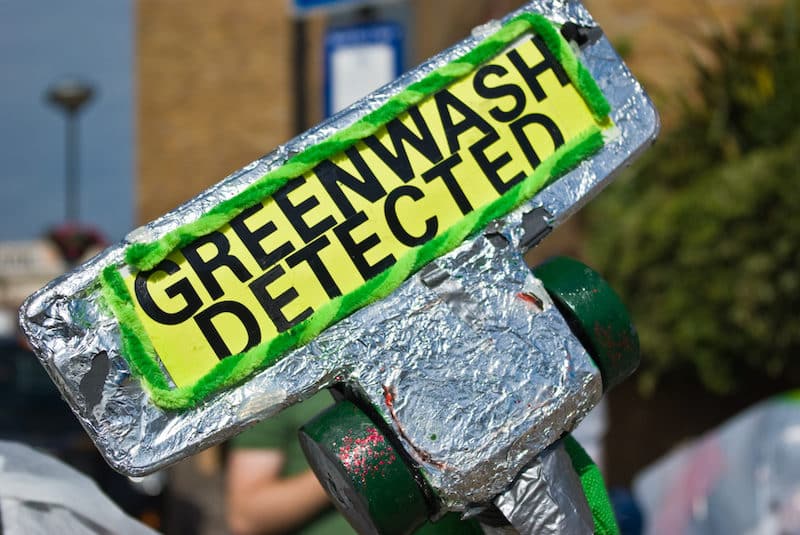Reports Expose US Billionaires and Corporate Profiteers Enabling Israel’s War on Gaza
Original article by JESSICA CORBETT republished from Common Dreams under Creative Commons (CC BY-NC-ND 3.0).

“As the Biden administration attempts to deny the death toll of Israel’s campaign of mass murder in Gaza and sell genocide as a stimulus for the U.S. economy, these are the death merchants profiting from the war machine.”
With more than 7,300 Palestinians killed so far in Israel’s three-week bombardment of Gaza, a series of reports this week have exposed how U.S. weapon-makers and billionaire donors are enabling what legal scholars say could amount to genocide.
After Israel declared war in response to Hamas killing over 1,400 Israelis and taking around 200 hostages, the stocks of major American and European war profiteers soared. A Thursday report from Eyes on the Ties—the news site of LittleSis and Public Accountability Initiative—targets five U.S. firms with a record of providing weaponry to Israel.
The outlet stressed that while announcing a supplemental funding request that includes $14.3 billion for Israel, U.S. President Joe Biden last week “invoked ‘patriotic American workers’ who are ‘building the arsenal of democracy and serving the cause of freedom,’ but it’s the defense company CEOs who rake in tens of millions a year, and Wall Street shareholders, who are the real beneficiaries of warmongering.”
The five targeted industry giants collectively recorded $196.5 billion in military-related revenue last year, Eyes on the Ties reported. They are Boeing ($30.8 billion), General Dynamics ($30.4 billion), Lockheed Martin ($63.3 billion), Northrop Grumman ($32.4 billion), and RTX, formerly Raytheon ($39.6 billion).
“The top shareholders in these five defense companies largely consist of big asset managers, or big banks with asset management wings, that include BlackRock, Vanguard, State Street, Fidelity, Capital Group, Wellington, JPMorgan Chase, Morgan Stanley, Newport Trust Company, Longview Asset Management, Massachusetts Financial Services Company, Geode Capital, and Bank of America,” the news outlet noted.
Eyes on the Ties also highlighted how chief executives are handsomely compensated—and the CEOs’ ties to Big Pharma, the fossil fuel industry, Wall Street, and foreign policy think tanks such as the Council on Foreign Relations and Center for Strategic and International Studies.
According to the report:
- Boeing CEO David Calhoun took in over $64 million in total compensation from 2020-22 and as of February held 193,247 shares;
- General Dynamics CEO Phebe N. Novakovic took in over $64 million in total compensation from 202-22 and as of March held 1,616,279 shares;
- Lockheed Martin CEO Jim Taiclet took in over $66 million in total compensation from 2020-22 and as of February held 56,054 shares;
- Northrop Grumman CEO Kathy J. Warden took in over $61 million in total compensation from 2020-22 and as of March held 161,231 shares; and
- RTX CEO Gregory J. Hayes took in over $63 million in total compensation from 2020-22 and as of February held 801,339 shares.
Other reporting this week has taken aim at those CEOs for their suggestions that Israel’s assault on Gaza is good for business.
During Lockheed Martin’s latest earnings call, Taiclet correctly predicted Biden’s request last week, saying that “there continues to be the option… for supplemental requests related to support Ukraine, Israel, and potentially Taiwan.”
In addition to the request for Israel—which already gets nearly $4 billion in annual U.S. military aid—Biden asked for $4 billion to counter Chinese influence in the Indo-Pacific region and $61.4 billion more for Ukraine, which is battling a Russian invasion.
“We are all witnessing significant geopolitical tensions across the globe, including the ongoing war in Ukraine and the horrific attacks in Israel,” Warden said during Northrop Grumman’s Thursday earnings call, according toVICE. “As we saw last week, the [Biden] administration continues to make supplemental requests for urgent needs, including those in Ukraine and Israel, to include investments in weapons systems and defense industrial base readiness.”
As The Lever reported:
“The Israel situation obviously is a terrible one, frankly, and one that’s just evolving as we speak,” said Jason Aiken, chief financial officer and executive vice president at General Dynamics, on Wednesday. “But I think if you look at the incremental demand potential coming out of that, the biggest one to highlight and that really sticks out is probably on the artillery side.”
He continued: “Obviously that’s been a big pressure point up to now with Ukraine, one that we’ve been doing everything we can to support our Army customer. We’ve gone from 14,000 rounds per month to 20,000 very quickly. We’re working ahead of schedule to accelerate that production capacity up to 85,000, even as high as 100,000 rounds per month, and I think the Israel situation is only going to put upward pressure on that demand.”
Last week, roughly 100 activists gathered outside of General Dynamics’ weapons plant in Pittsfield, Massachusetts, to protest the Israeli war, holding signs with slogans like, “Genocide: Brought To You By General Dynamics.”
Both The Lever and VICE also pointed out that during RTX’s Tuesday call, Hayes started by “acknowledging the tragic situation playing out in Israel” before turning to “an update on our end markets.”
If Congress approves Biden’s request for Israel, VICE explained, “some of the money would be used to restock Israel’s Iron Dome rocket defense system, which RTX manufactured.” Hayes said: “I think really across the entire Raytheon portfolio, you’re going to see a benefit of this restocking. On top of what we think is going to be an increase in [U.S. Department of Defense] top line.”
It’s not just defense executives enabling Israel’s mass slaughter of civilians in Gaza. As Eyes on the Ties reported, “Lobbying groups including the American Israel Public Affairs Committee (AIPAC) and Democratic Majority for Israel have been active in Washington, calling on lawmakers to send money and weapons to Israel.”
The report names some billionaire donors to the lobbying groups, including New England Patriots and the Kraft Group CEO Robert Kraft, private equity investor Marc Rowan, venture capitalist Gary Lauder, hedge fund managers Daniel Loeb and Paul Singer, and Home Depot co-founder Bernard Marcus, who is also the founding president of the Israel Democracy Institute.
U.S. Rep. Summer Lee (D-Pa.) said Wednesday that Americans “know that funneling billions more dollars into arms dealers’ pockets won’t keep our children safe from weapons of war at home or across the world. It won’t keep our loved ones safe from toxins in our air and drinking water. They know that lining the pockets of weapons manufacturers won’t help families struggling to afford housing, medicine, or grocery costs. They know defense contractors won’t safeguard Medicare and Social Security or shield our communities against the climate crisis.”
Unlike the CEOs of firms like Lockheed Martin and RTX, “moms who can’t afford childcare, young folks who can’t pay off their debt, veterans who can’t keep up with housing costs, and children who go to school hungry don’t have million-dollar lobbying budgets,” added Lee, one of the few members of Congress pushing for a cease-fire in Gaza. “So it’s up to us to stand up for their needs.”
Original article by JESSICA CORBETT republished from Common Dreams under Creative Commons (CC BY-NC-ND 3.0).
